Poha dosa is amazingly soft, spongy, porous crepes or pancakes made with flattened rice, idli rice, curd and urad dal batter. Poha is flattened rice and dosa are crepes. Poha has various names. So these dainty fluffy pancakes take the first name of this hero ingredient aka poha and are also called as Atukula Dosa or Aval Dosa or Avalakki Dosa in regional South Indian languages. Serve them with Coconut Chutney or Sambar for a comforting breakfast or lunch.
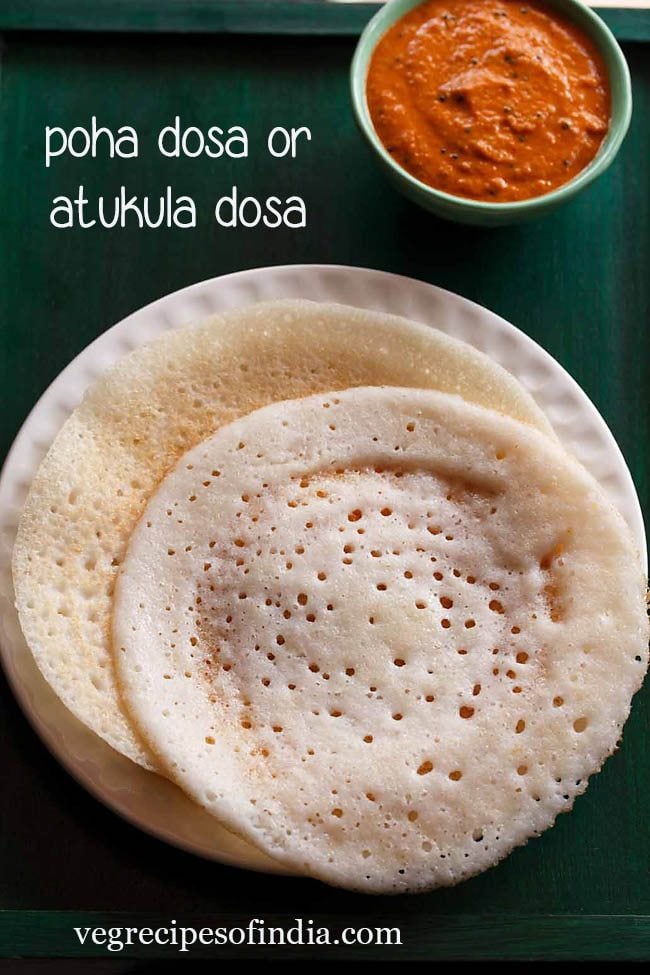
I chanced upon this atukula dosa decades back in Chandra Padmanabhan’s cookbook: “Simply South: Traditional Vegetarian Cooking”. Since then I have been making them often.
There are a few variations in making this recipe. What I share is an Andhra Style Poha dosa.
The method to make poha dosa is slightly different than the one for regular Dosa. Here the rice and poha are soaked in buttermilk. Then ground and fermented for 4 to 5 hours.
In fact, I like these dosas so much that I usually pair them with tea or coffee. When I made the dosas this time, I served poha dosa with red amaranth sambar and sesame coconut chutney.
These avalakki dosa remain soft even after some hours. Thus making them excellent for a tiffin box snack with a side of some dry powdered chutney like an Idli Podi. You can also pack for lunch or for short journeys.
While cooking them you can cook one side or both sides. They make for an excellent weekend or Sunday breakfast or brunch.
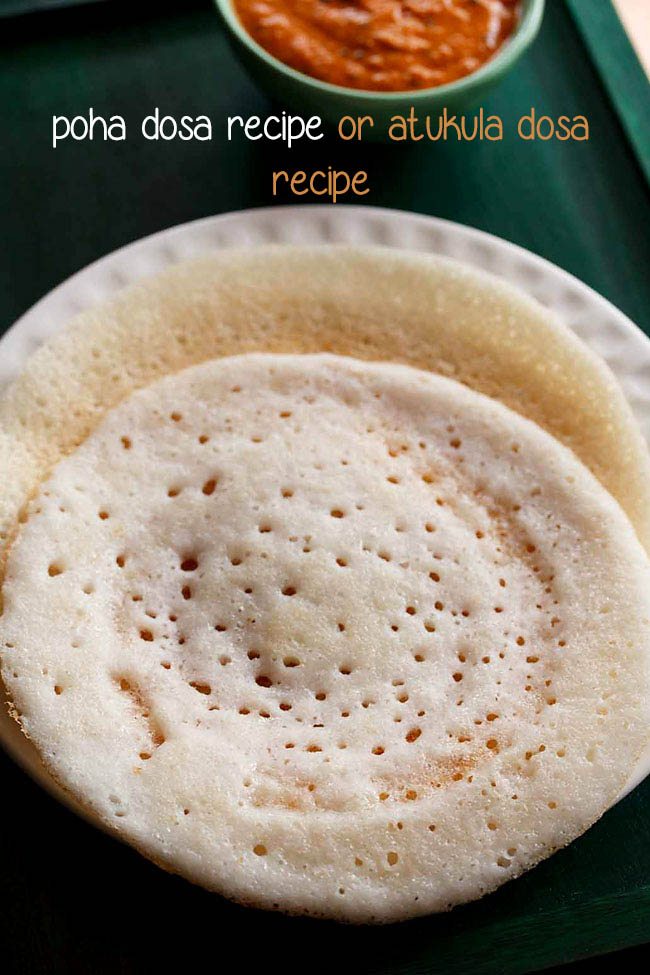
How to make Poha Dosa
Making Aval Dosa Batter
1. In a bowl, take ½ cup fresh curd (yogurt) and 1 cup water. Mix very well with a wired whisk to make buttermilk.
Don’t use sour curd as by the time the batter is fermented it will become very sour.
Alternatively you can use 1.5 cups of buttermilk.
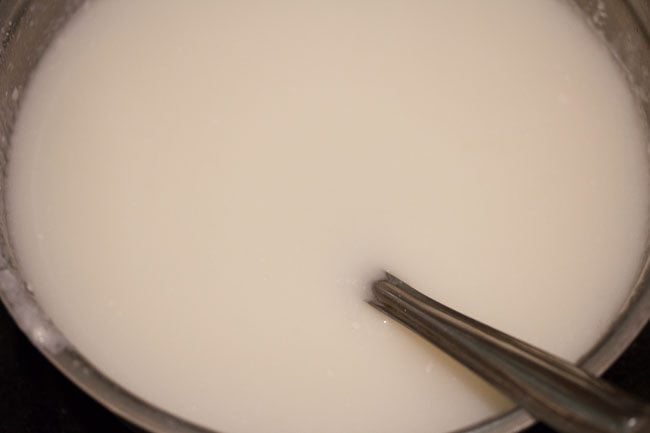
2. In a bowl, take 1 cup idli rice (parboiled rice) or regular rice like sona masuri or parmal rice.
Also add ½ cup thick poha (flattened rice) and 2 tablespoons urad dal (husked black gram).
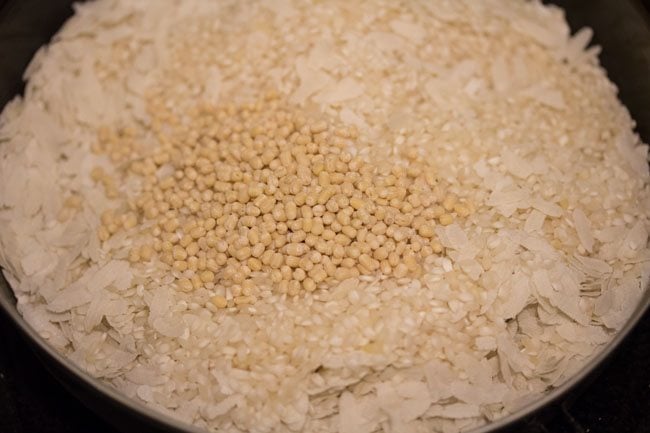
3. Rinse the rice, poha and urad dal a couple of times with fresh water. Then drain all the water.
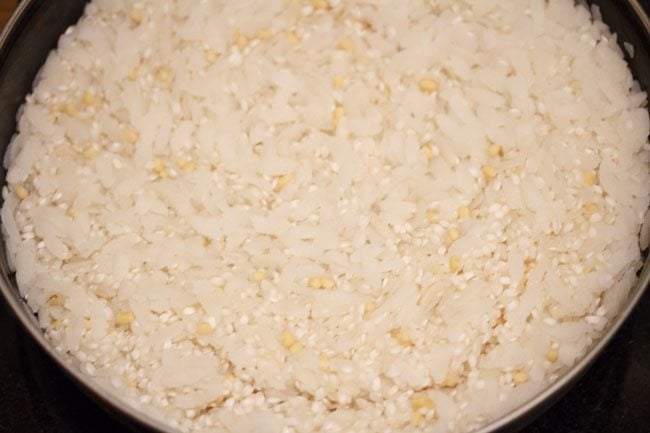
4. Now pour the prepared buttermilk (curd+water mixture) in the rinsed rice, poha and urad dal.
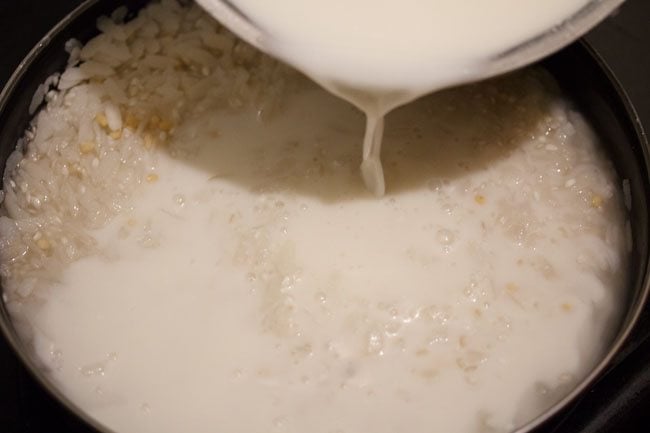
5. Gently stir the mixture.
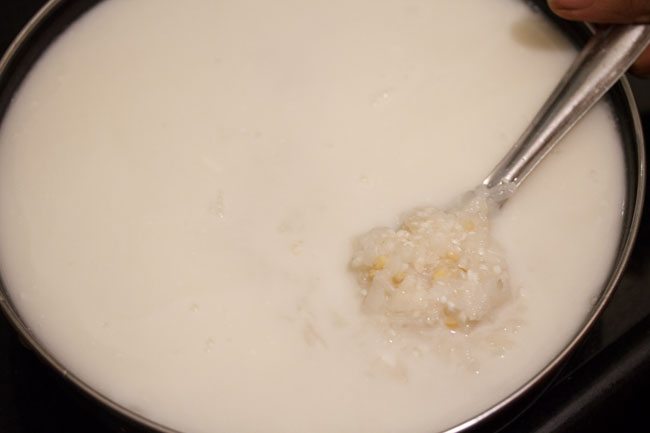
6. Soak the rice, poha and urad dal in the buttermilk mixture for 2 to 3 hours.
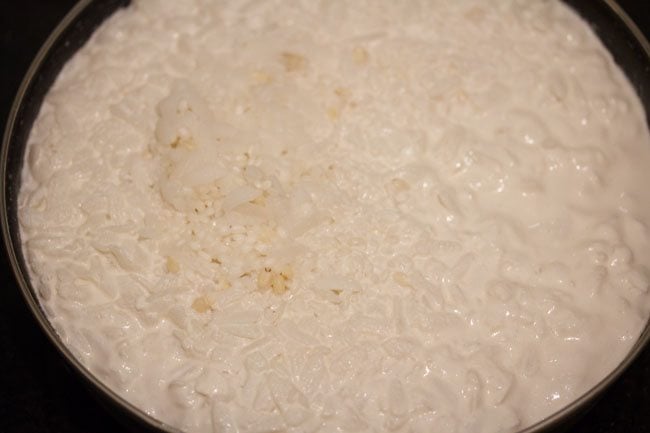
7. Drain and reserve the soaked liquid. Add the soaked rice, urad dal and poha to the blender jar.
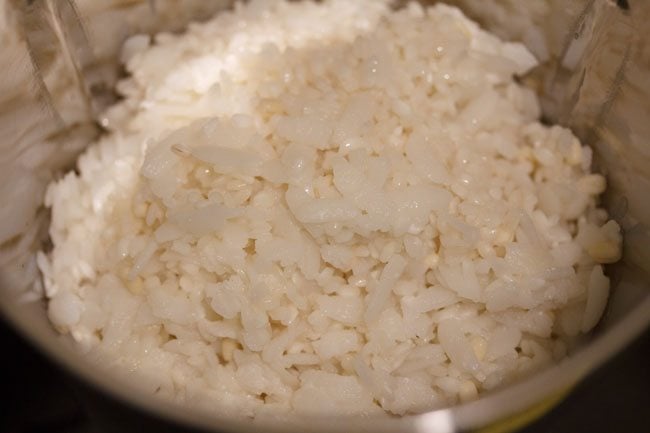
8. Grind or blend to a smooth batter using all of the reserved soaked liquid.
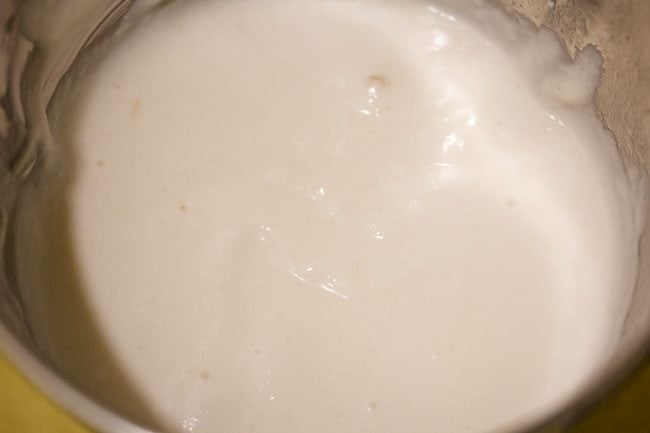
9. Remove the batter to a bowl and add ¼ teaspoon baking soda and 1 teaspoon salt.
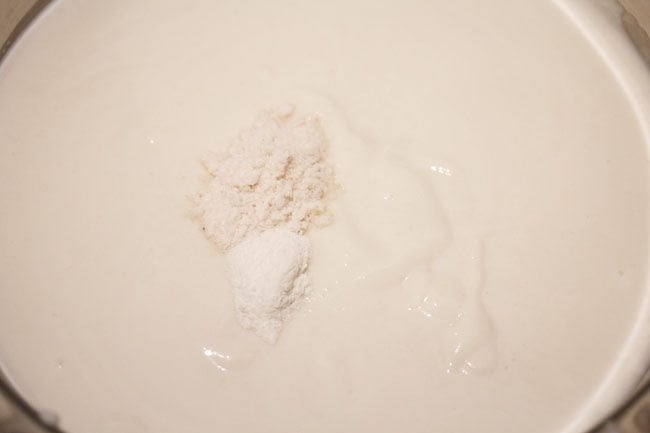
10. Mix well.
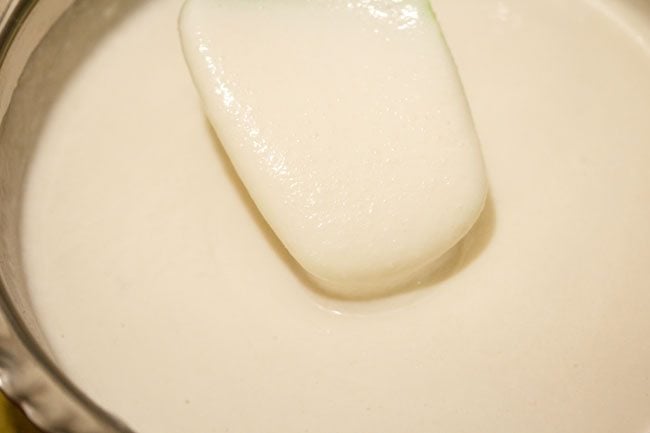
11. Ferment for 4 to 5 hours or as required. The batter should have a nice sour aroma.
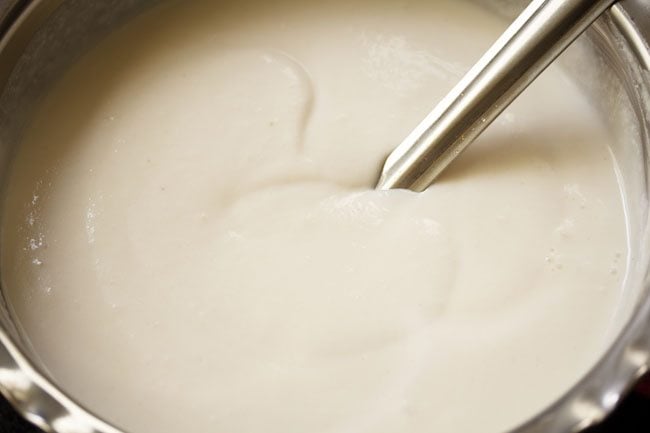
Cooking poha dosa
12. Heat a tava or griddle or a cast-iron skillet. Brush the pan with some oil. You can also spread the oil with an onion halve dipped in some oil or with a kitchen paper towel that has been folded and dipped in a bit of oil.
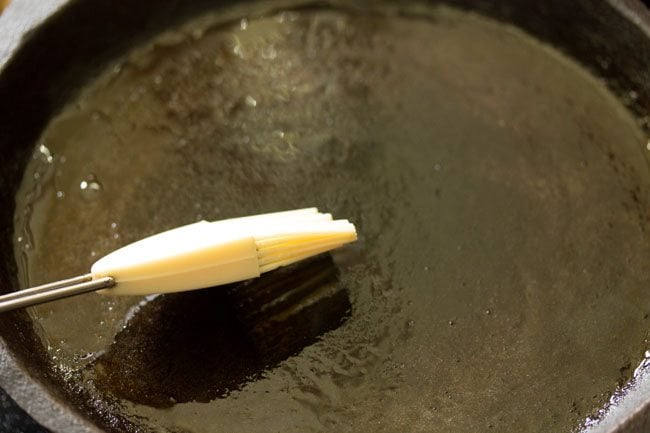
13. Take a ladle of batter and pour it on the pan. Keep the heat to low or medium-low so that you are able to spread the batter evenly.
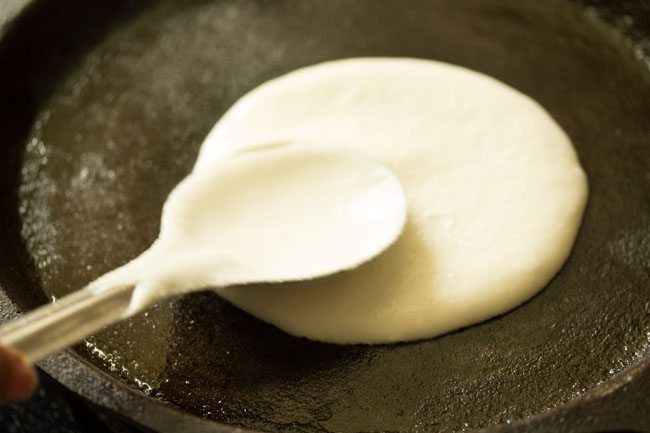
14. Starting from the center, spread the batter in a circular motion with the back of a spoon.
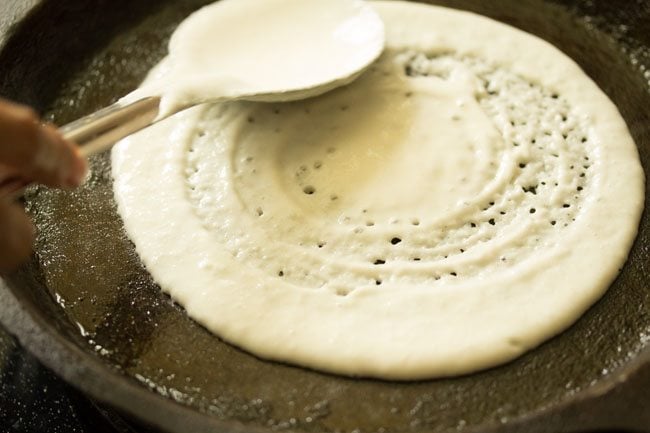
15. Make a slightly thick dosa and not thin like the regular dosa.
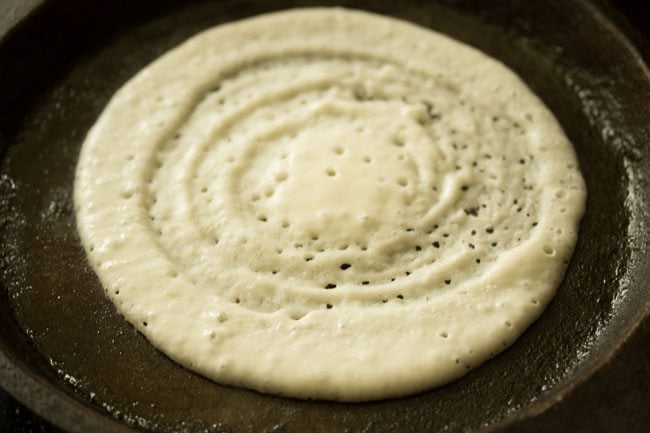
16. Drizzle oil around the edges and in the center.
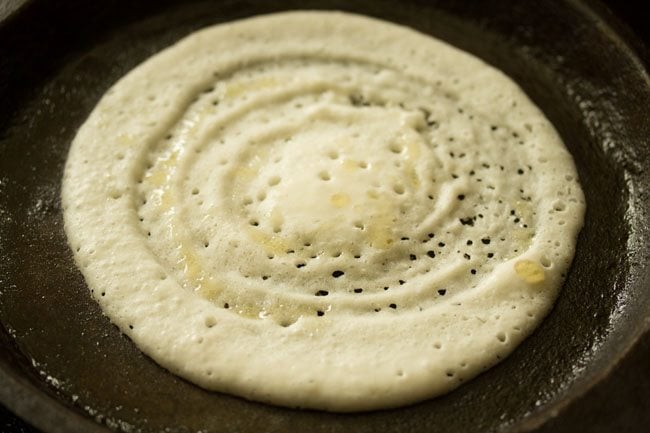
17. Cover the dosa with a lid.
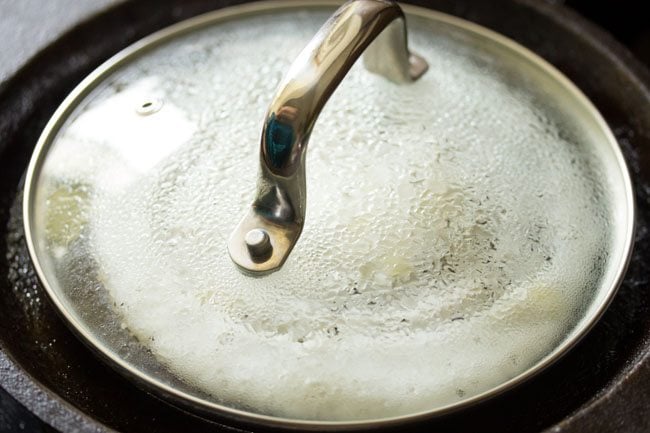
18. Cook them for 1 to 2 minutes or till the base is cooked and crisp and the top is soft and spongy.
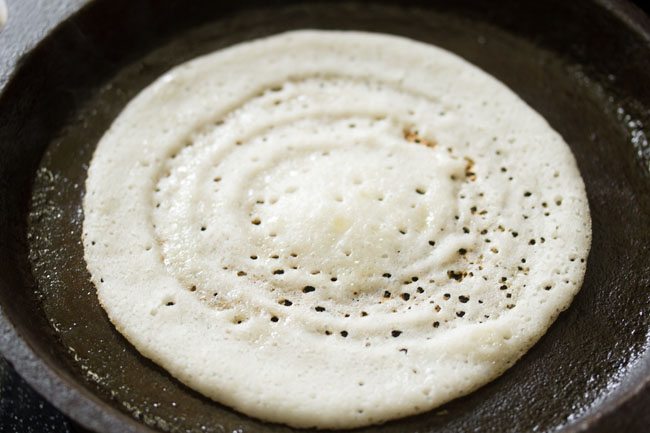
19. Flip the dosa and you can cook the other side if you want. Spread the oil which we had drizzle on top with a spoon.
You can choose to cook just one side or both sides of the dosa.
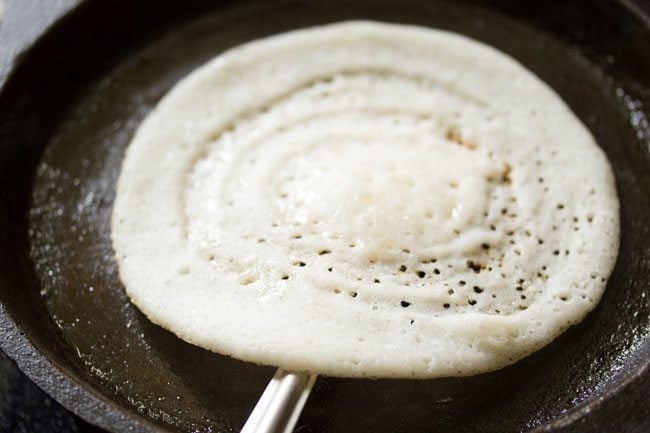
20. Similarly, make the rest of the dosa with the remaining batter. Refrigerate any leftover batter for 1 day. Don’t store the batter for more than 1 day as curd is used in the recipe.
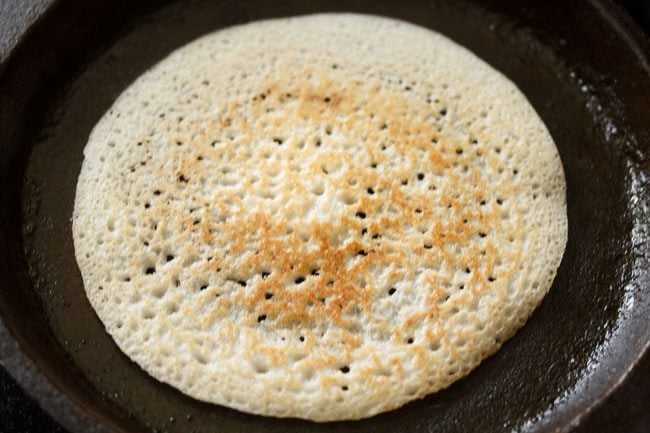
Serve Poha dosa hot or warm with coconut chutney or sambar. It can also be served with other chutney varieties like onion chutney, tomato chutney, peanut chutney, ginger chutney or idli podi.
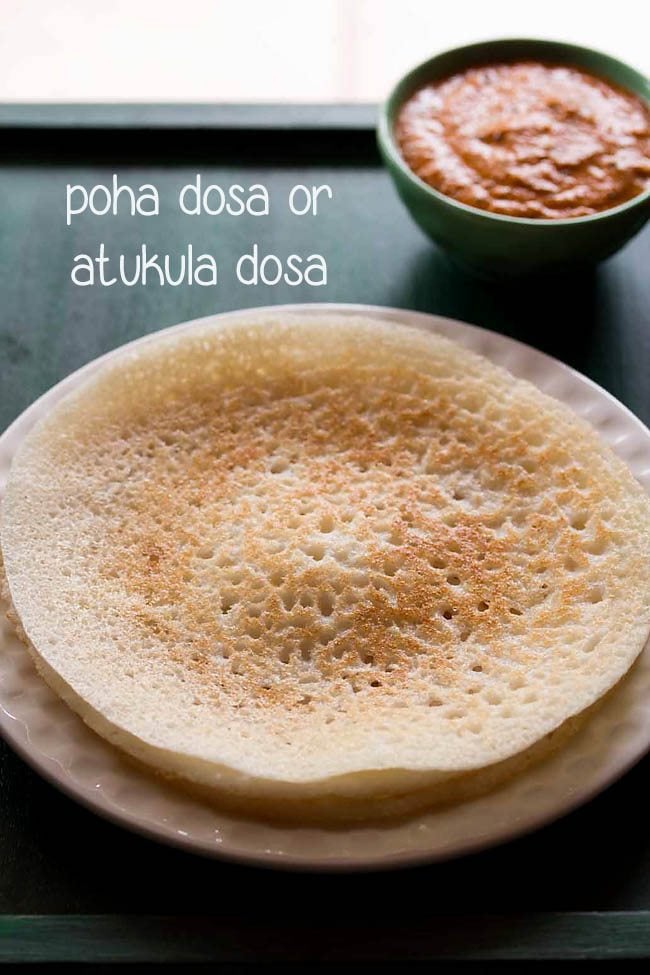
More tasty Dosa varieties:
If you’ve tried this recipe, please rate it in the recipe card or leave a comment below – I’d love to hear your feedback. For more vegetarian inspiration, sign up for my email updates or follow me on Instagram, Youtube, Facebook, Pinterest or X.
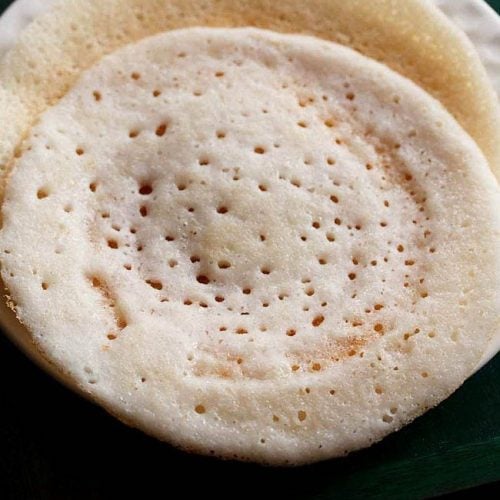
Poha Dosa | Atukula Dosa
Ingredients
- 1 cup idli rice or parboiled rice or regular rice like sona masuri rice, parmal rice – 200 grams
- ½ cup thick poha (flattened rice or parched rice) – 50 grams
- 2 tablespoons urad dal (husked black gram)
- ½ cup Curd
- 1 cup water for mixing with curd
- ¼ teaspoon baking soda
- 1 teaspoon salt or add as per taste
- oil as required
Instructions
Making aval dosa batter
- In a bowl, take fresh curd (dahi or yogurt) and water. Mix very well with a wired whisk to make buttermilk. Don't use sour curd.
- In an another bowl, take idli rice or parboiled rice or regular rice like sona masuri rice, parmal rice. Also add thick poha (flattened rice) and urad dal (husked black gram).
- Rinse the rice, poha and urad dal a couple of times with water. Then drain all the water.
- Now pour the prepared buttermilk (curd+water mixture) in the rinsed rice, poha and urad dal.
- Gently stir the mixture.
- Soak the rice, poha and urad dal in the buttermilk mixture for 2 to 3 hours.
- Drain and reserve the soaking liquid. Add the soaked rice, urad dal and poha in the blender jar.
- Grind or blend to a smooth batter using all of the reserved liquid.
- Remove the batter in a bowl and add baking soda and salt. Mix well.
- Ferment the batter for 4 to 5 hours or as required.
Cooking poha dosa
- Heat a tava or griddle or a cast iron pan. Brush the pan with some oil.
- Take a ladle of batter. Spread in a circular motion with the back of a spoon. Make a slightly thick dosa.
- Drizzle oil around the edges and on top of the dosa. Cover the dosa with a lid.
- Cook poha dosa for 1 to 2 minutes or till the base is cooked and crisp and the top is soft and spongy.
- Flip the dosa and you can cook the other side if you want.
- Similarly, make the rest of the avalakki dosa with the batter.
- Serve poha dosa hot with coconut chutney or sambar.
- Any leftover batter can be refrigerated for 1 day.
Nutrition Info (Approximate Values)
This Poha Dosa post from the blog archives first published in May 2012 has been republished and updated on 22 July 2021.
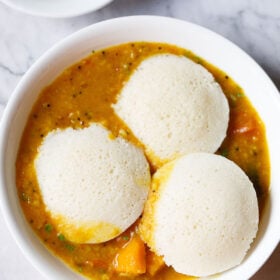
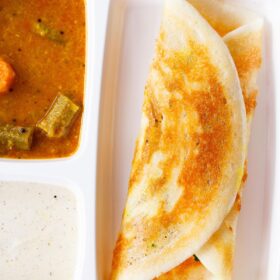
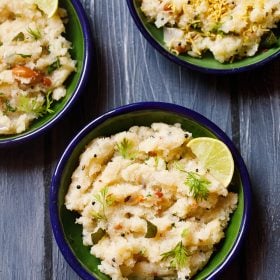
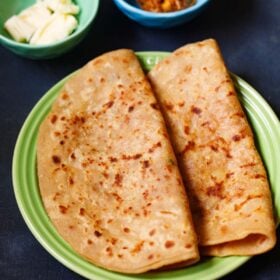








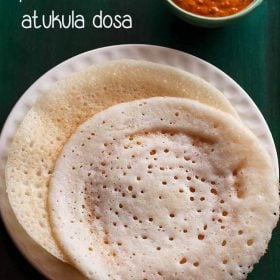
Nice